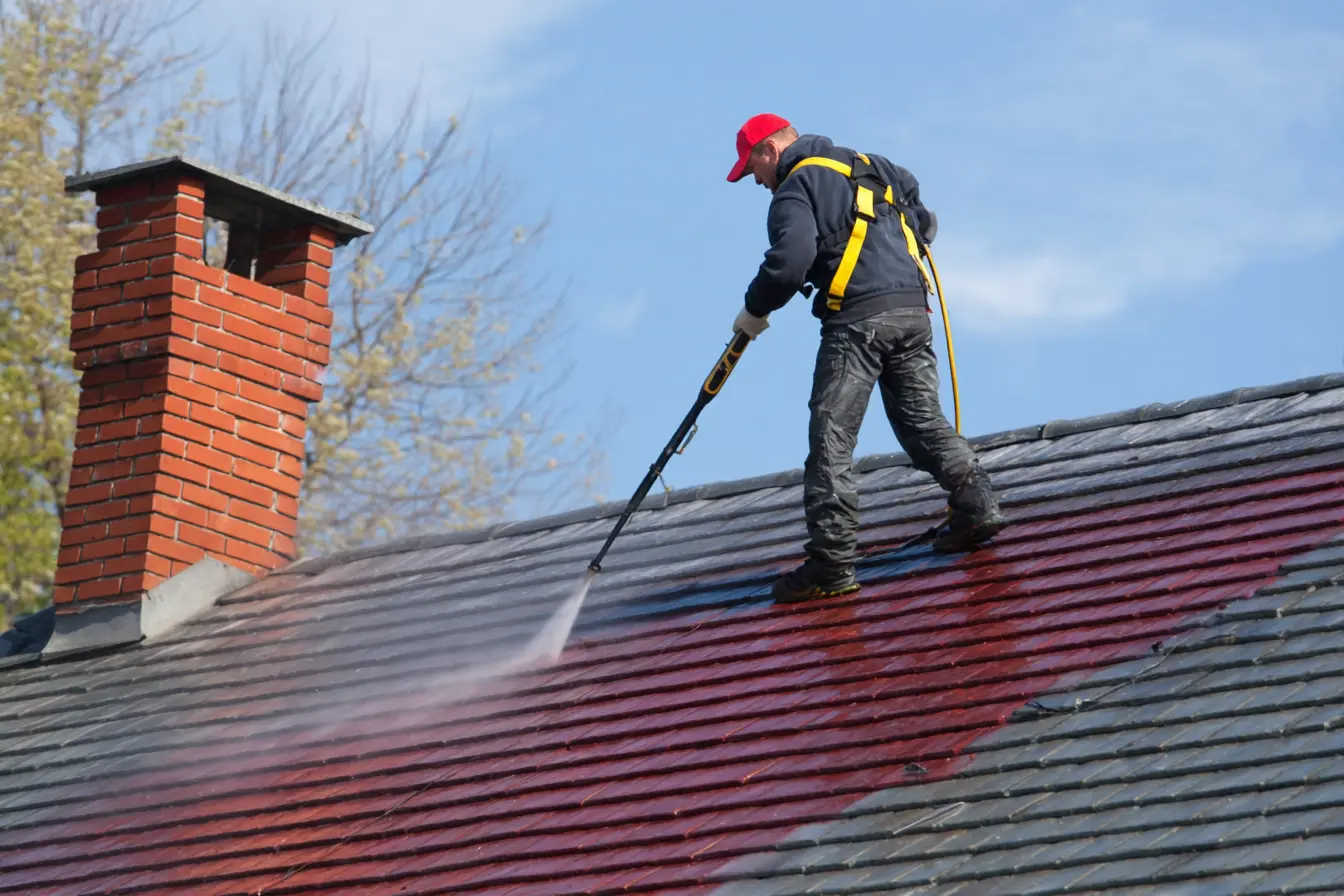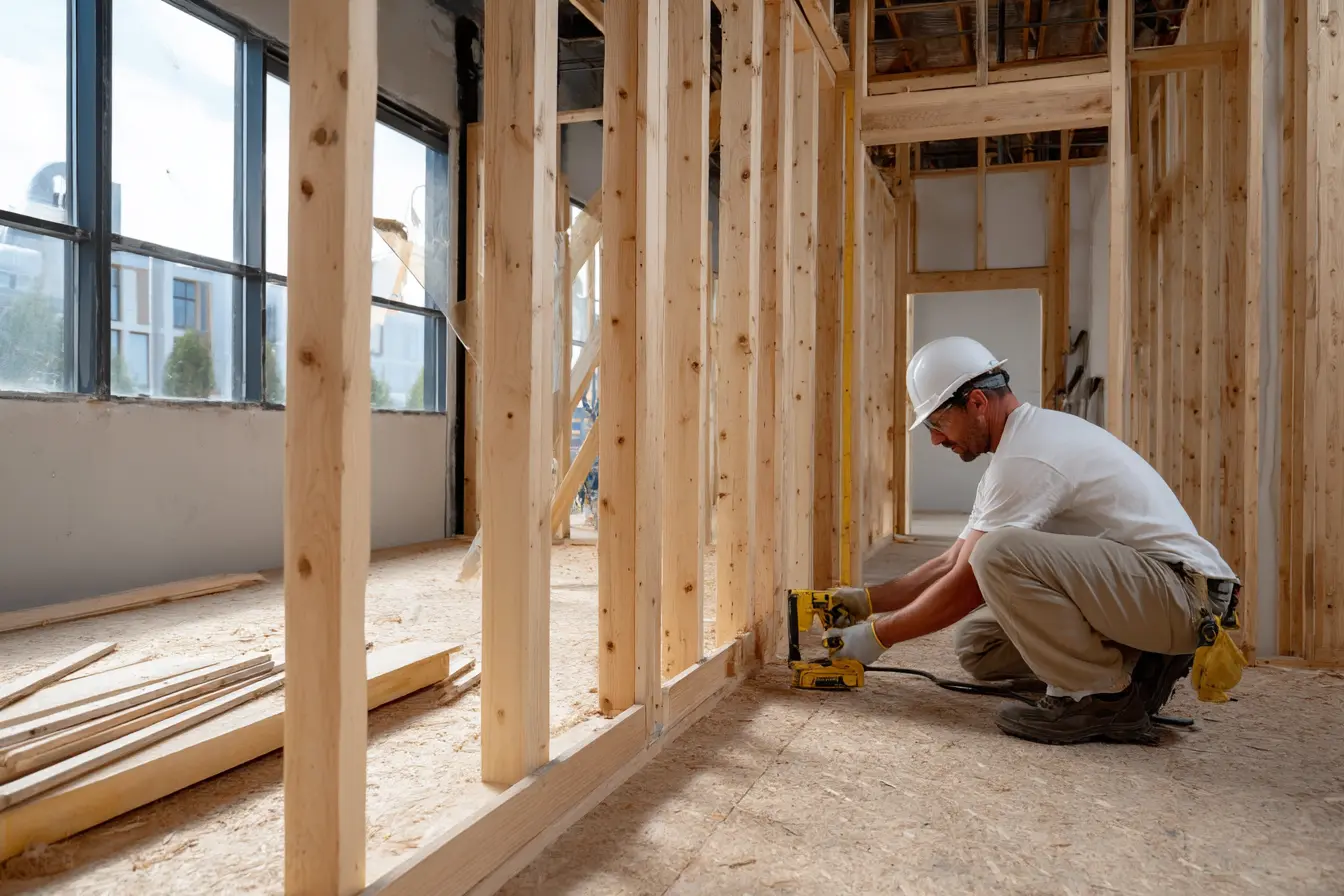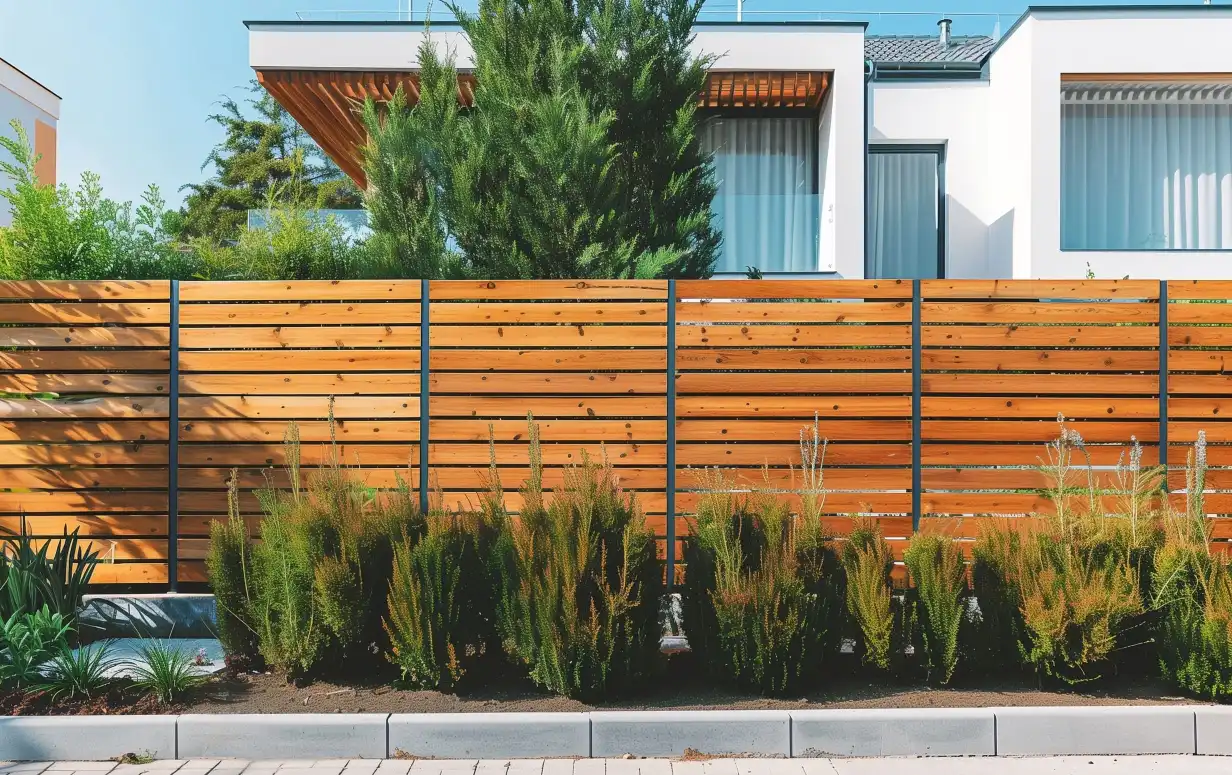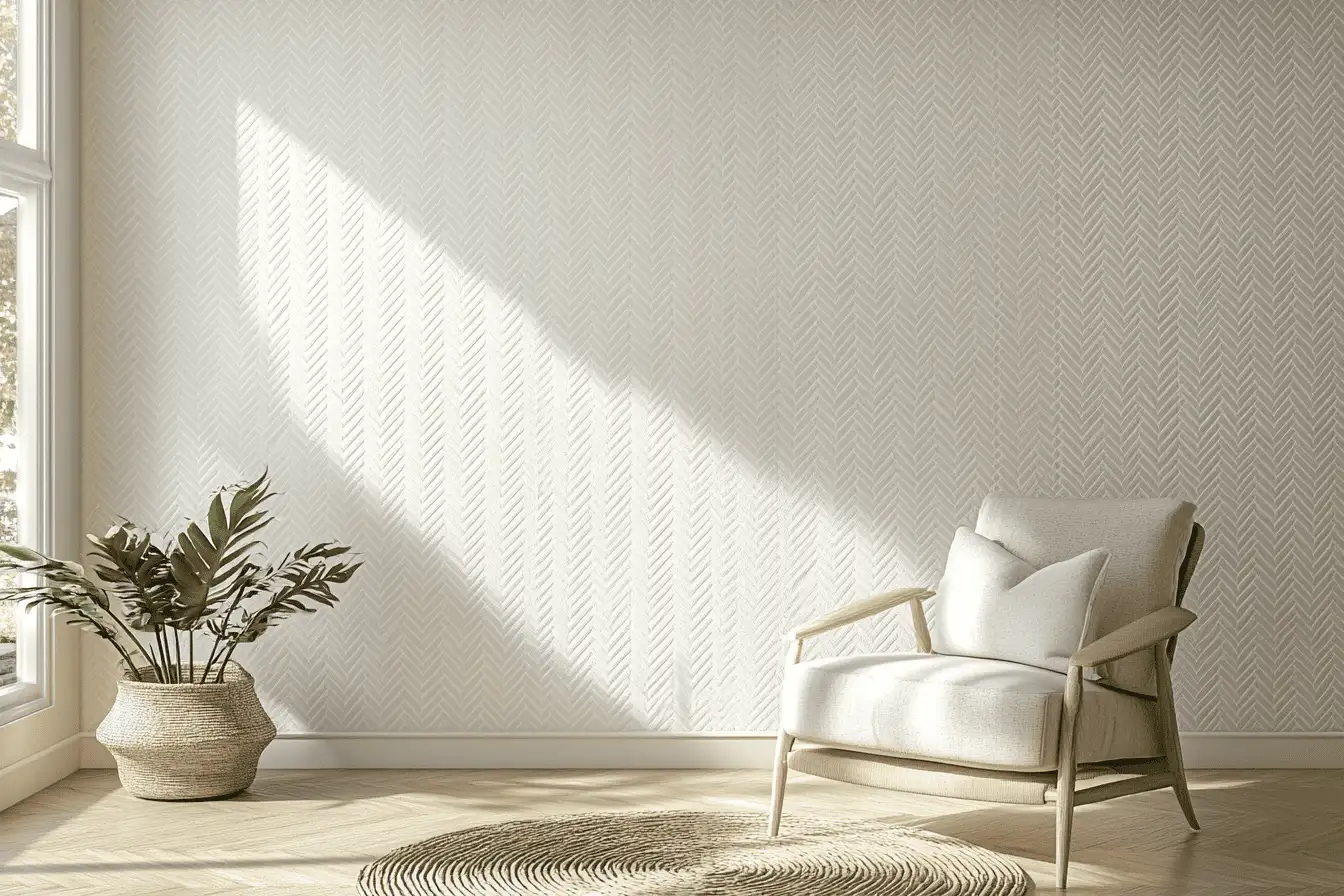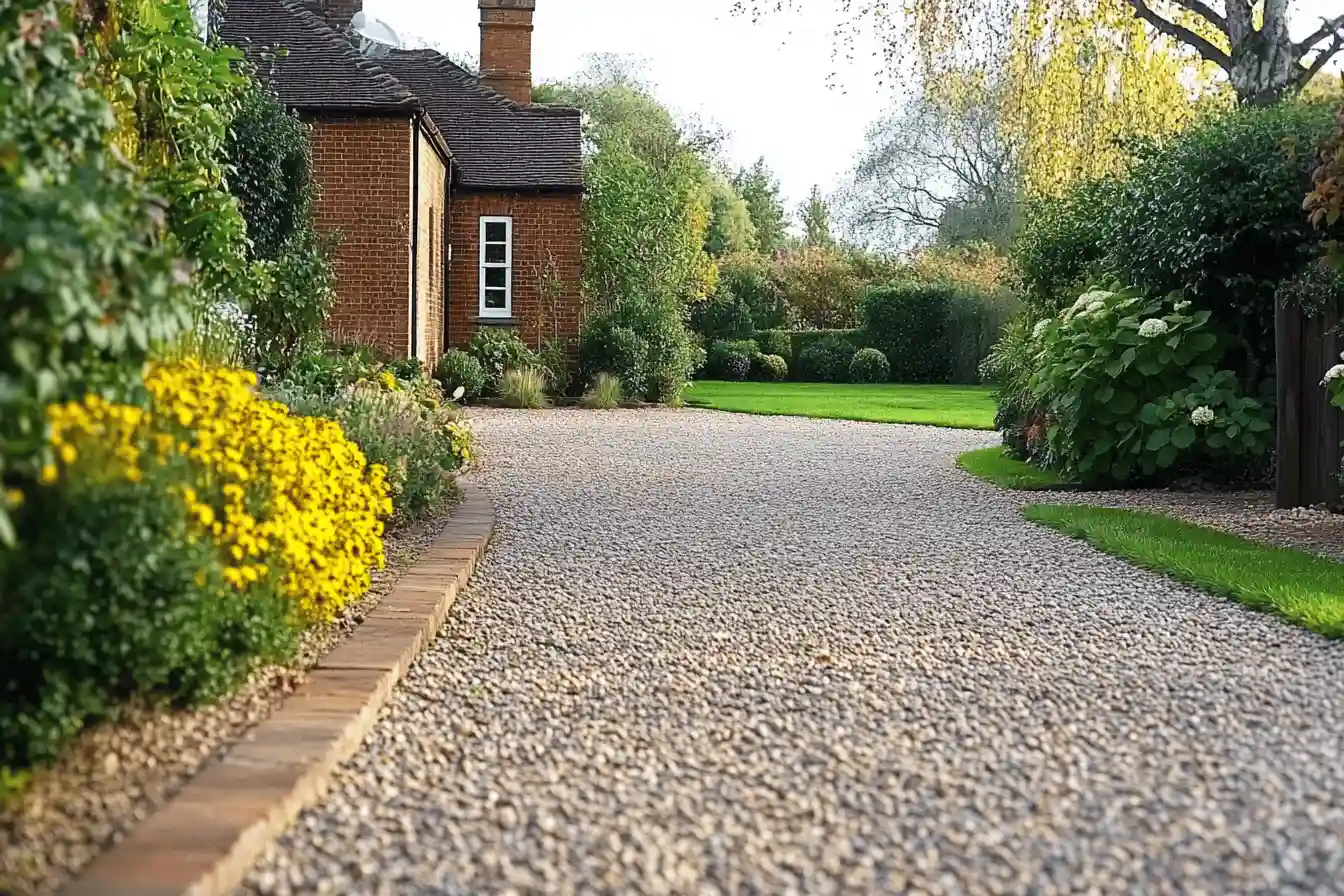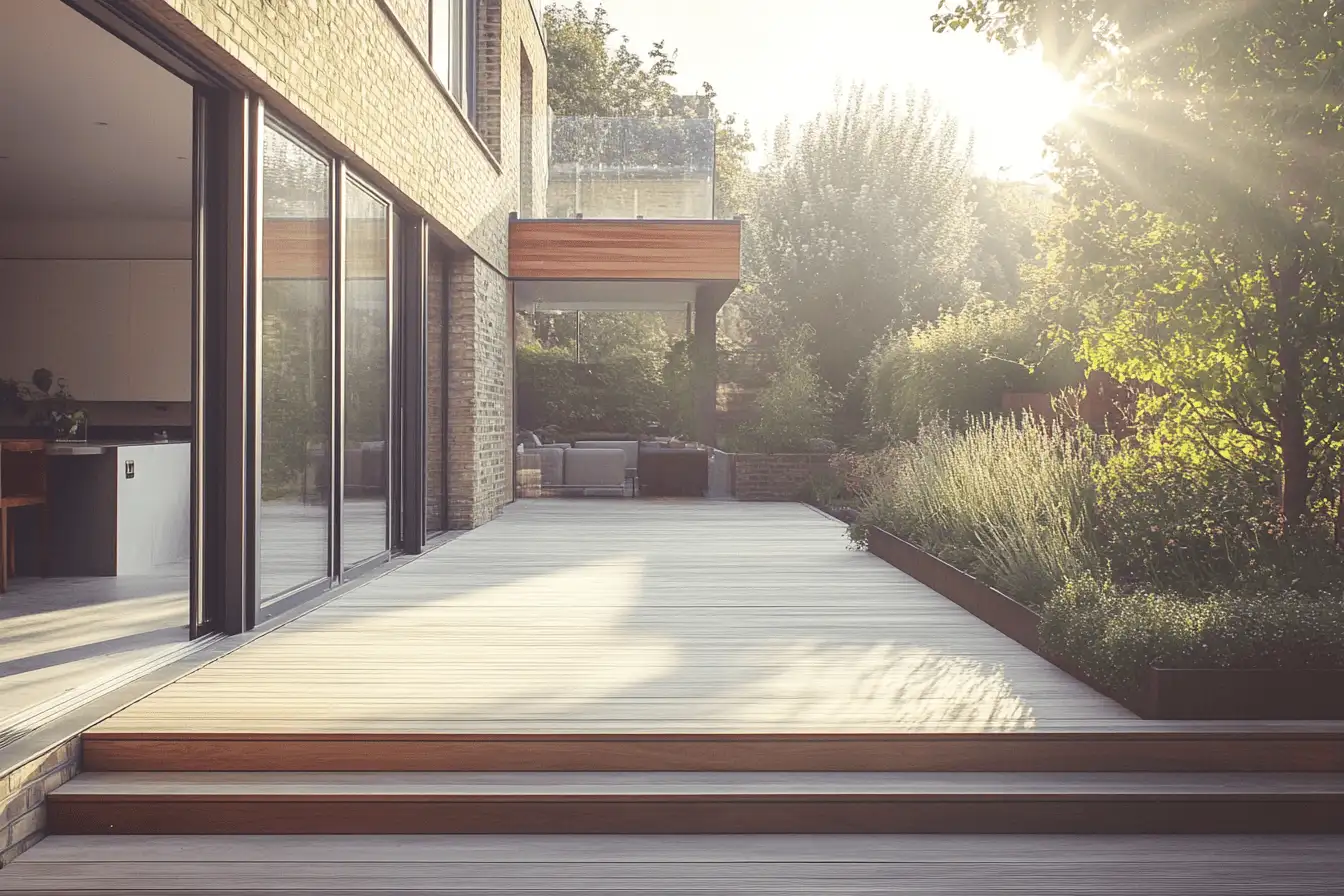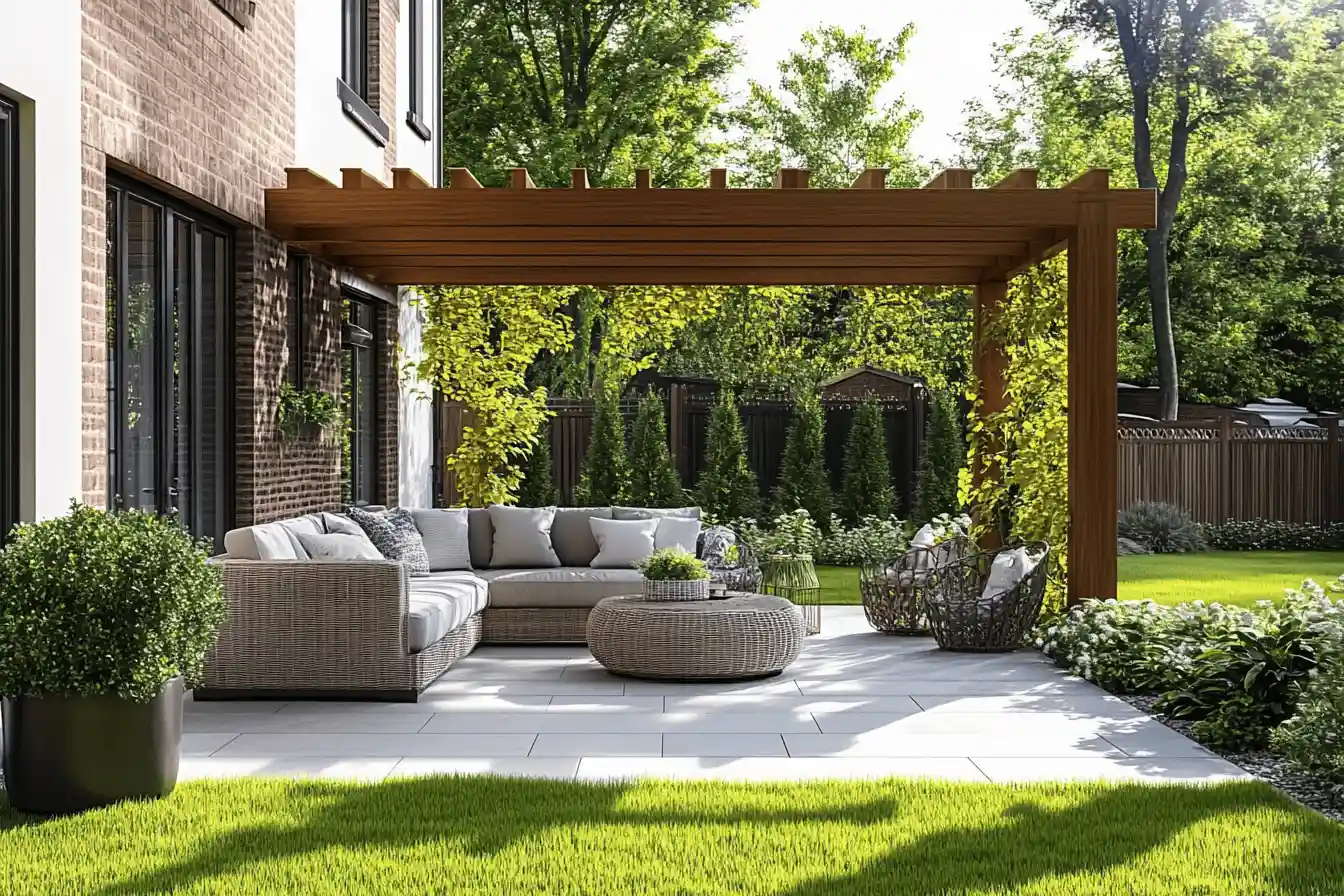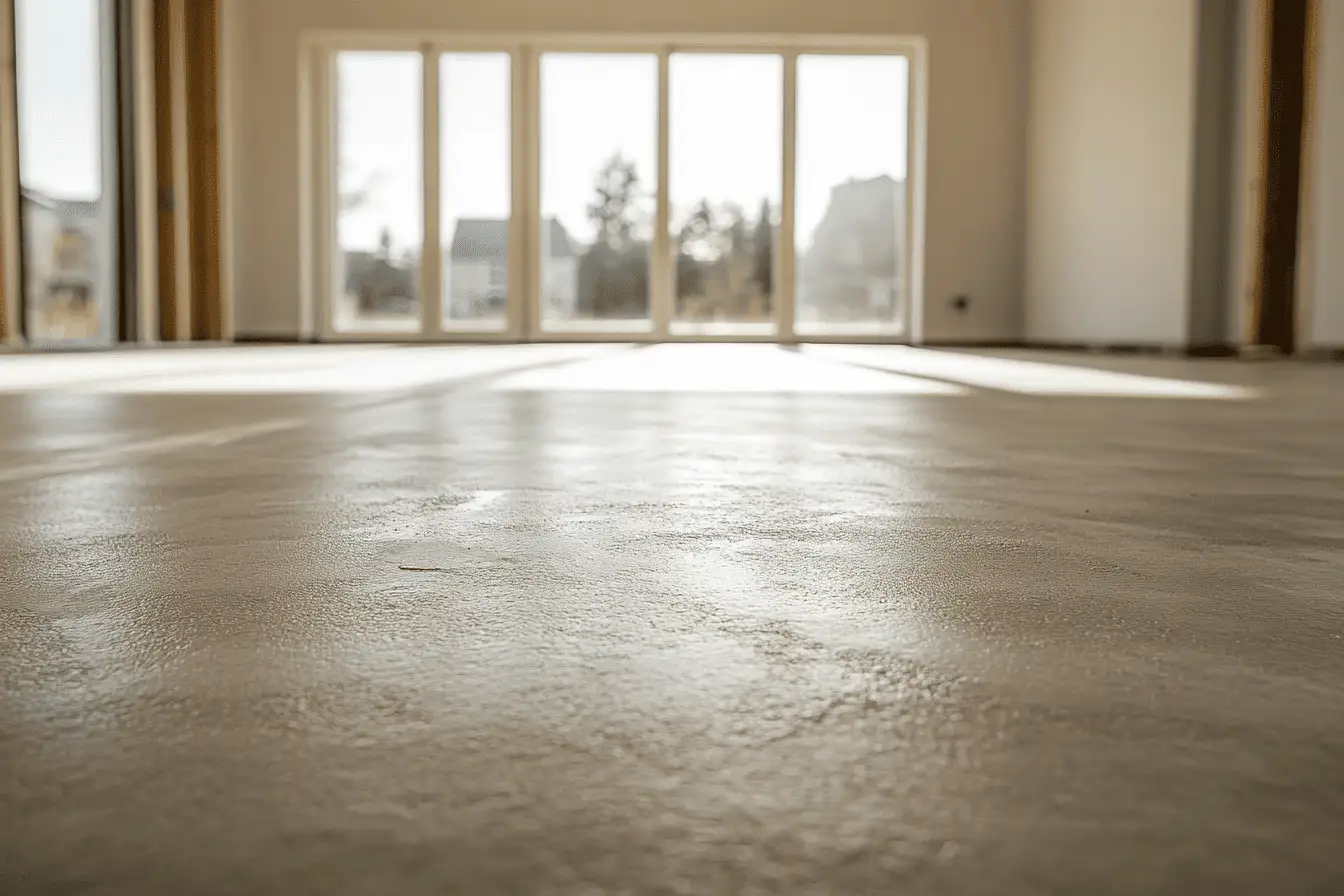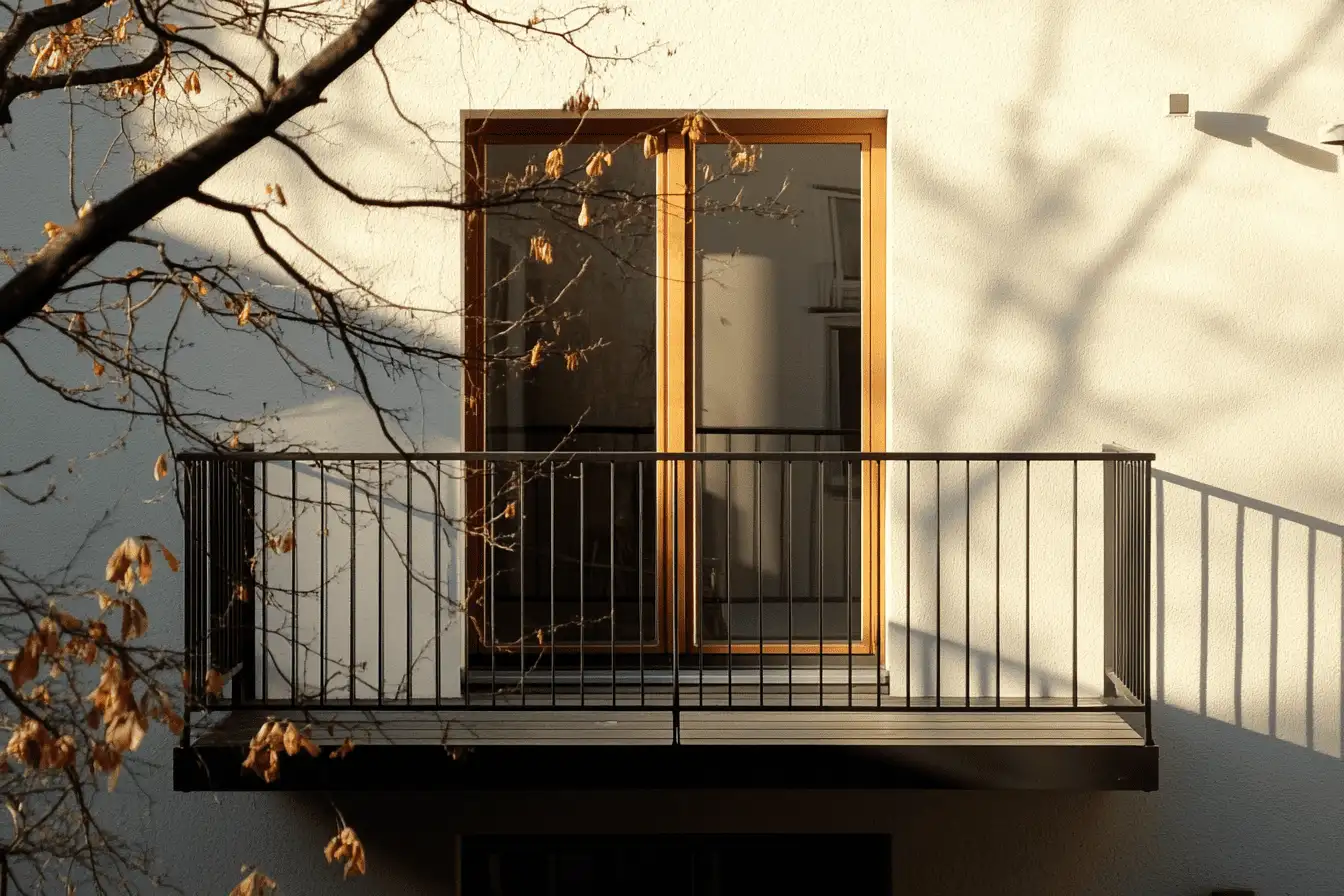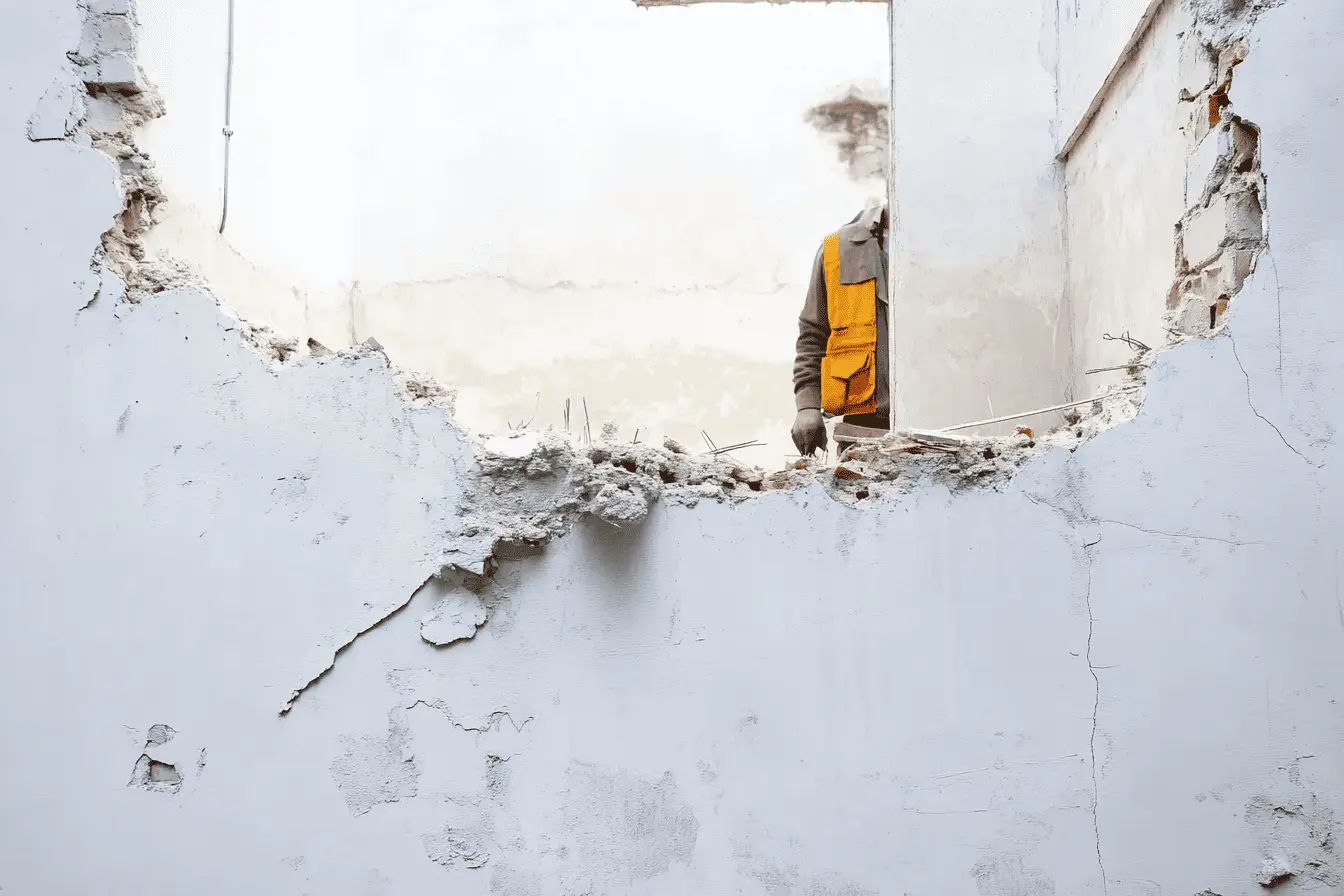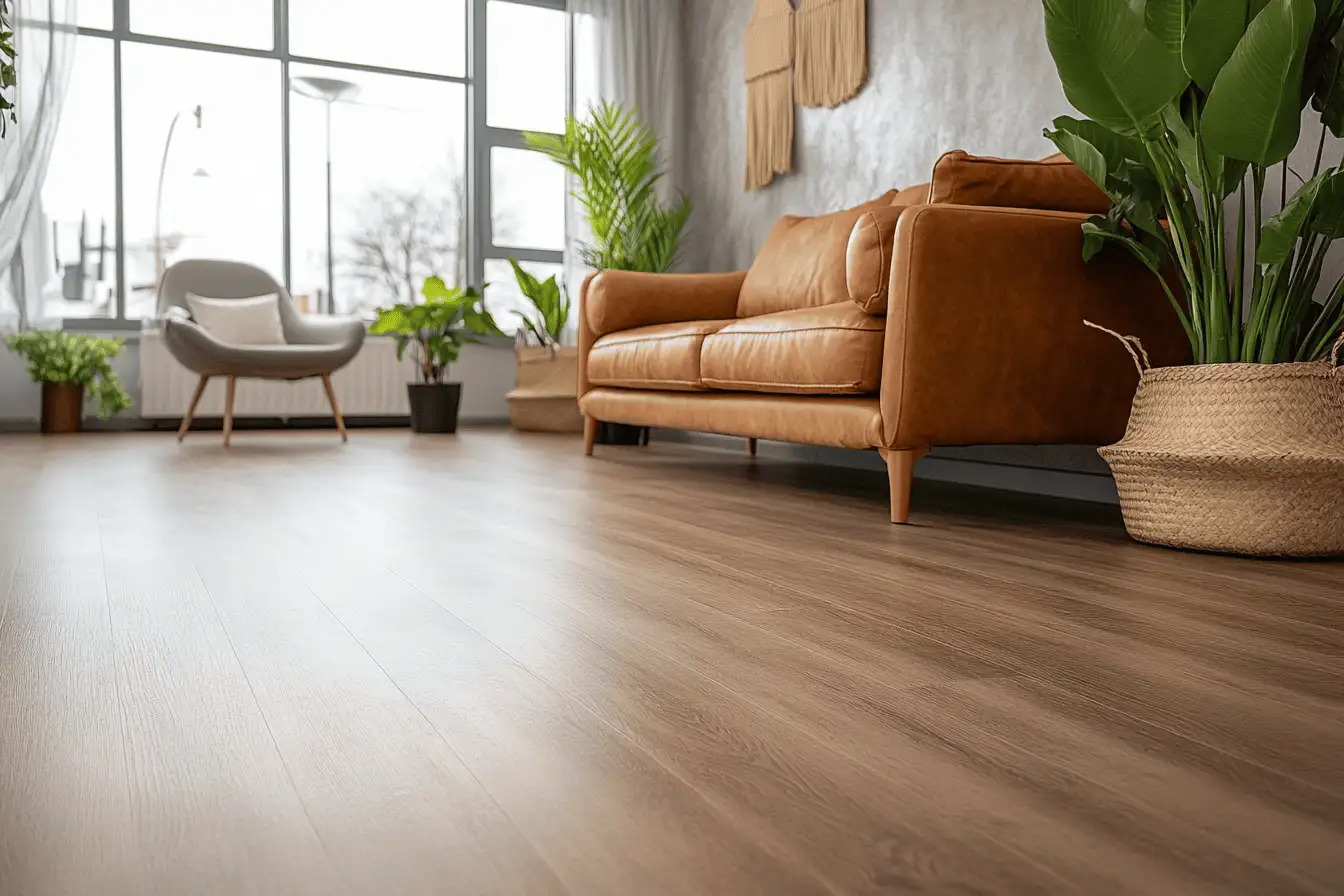
Vinyl flooring is becoming more and more popular: whether with traditional vinyl sheets or modern luxury vinyl tiles, which can hardly be distinguished in appearance from real stone tiles. We will show you the costs of vinyl flooring in the UK and how much the fitting costs per sqm. Plus: Get free estimates for your project!
How much for vinyl flooring fitting in the UK?
The average cost of vinyl flooring fitting is around £20-£60 per square metre in the UK. Prices start at £10 per square metre for cheap vinyl sheets and go up to £45 per square metre for popular luxury vinyl tiles (LVT). Wooden look vinyl planks usually range between £15-£40 per sqm.
ON AVERAGE: £20 – £60 PER SQM
Below is a cost example for 30 sqm luxury vinyl tile flooring in a living room. The base is a screed floor. The work is carried out in a suburb of London.
Cost example: 30 sqm luxury vinyl tile flooring
1 m² | 30 m² | |
|---|---|---|
Vinyl flooring (LVT) | £30 | £900 |
Prepare surface | £3 | £90 |
Labour costs (fitting) | £12 | £360 |
Install skirting boards | £3,6 | £108 |
Total cost | £48,6 | £1,458 |
Money saving tip: Compare floor fitting prices in your area!
There are now platforms that help you compare prices of contractors and find the best value for money in your area quickly and easily. A recommendable service is that of Bark. It only takes a few clicks to fill out the form. Whether you accept one of the offers or leave it at the price overview is up to you. The service is non-binding and free of charge.
How material and surface influence the labour costs
The labour costs for vinyl flooring installation can vary greatly. In most cases the labour costs make up about 50% of the total costs. Although the average price for a tradesperson is around £10-£20 per sqm, labour costs can be much higher, up to £40 per sqm.
This is usually the case when complex surface preparations have to be made and perhaps even an old flooring has to be removed beforehand, such as a carpet. The fastest installation and lowest labour costs would be for example vinyl sheets or click-vinyl, which are laid loose on a screed floor. Here labour costs of only £10 per sqm could apply.
Cost factors: How level is the floor? Loose lay or glue down?
Higher costs arise from the gluing of sheets, planks or tiles. The cost to install vinyl flooring in a bathroom or kitchen is for example always a little bit higher, because thicker water proof vinyl is used and this becomes completely glued down. Expect labour costs between £15-£30 per sqm in this case.
Below are further cost examples to show how labour costs can vary depending on the amount of work for preparing the surface and whether the vinyl is laid loose or glued. All prices on this page are estimates including VAT and may vary.
Vinyl type, surface | Material cost | Surface prep. | Fitting cost | Total m² |
|---|---|---|---|---|
Vinyl sheets, loose, on screet
floor | £10 | £3 | £9 | £22 |
Vinyl tiles, glued, on stone
tiles | £17 | £12 | £15 | £44 |
Click vinyl, loose, on
screet/ stone/ wood | £28 | £4 | £11 | £43 |
Vinyl flooring: Gluedown or loose lay?
Gluing vinyl flooring has the advantage of providing excellent room acoustics and this alternative is more advantageous when using underfloor heating. The firm bond to the subsurface ensures higher thermal conductivity, which means that heat can be transferred more directly from the subsurface.
Another advantage is that the planks cannot slip even under heavy loads. This is why vinyl flooring is also recommended for gluing in commercial buildings.
The disadvantage of this type of installation is that it is the more expensive and time-consuming installation technique for vinyl floors. Often the full-surface gluing is carried out by a specialist floor layer.
The subfloor must be prepared particularly thoroughly and must be absolutely even, as adhesive vinyl, unlike click vinyl flooring, does not tolerate even the slightest unevenness.
What is vinyl flooring?
Vinyl stands for the plastic polyvinyl chloride. Vinyl flooring used to have a bad reputation as there was something missing from the brittle and difficult to process vinyl – the plasticizer. This plasticizer made it possible to process vinyl in a wonderful way. At that time, however, it was quite hazardous to health and not exactly safe.
Today, however, this is no longer the case and vinyl can be laid in all areas of the house, whether bedroom, living room or kitchen. Even in children’s rooms or baby’s rooms you don’t need to be concerned anymore these days. These floor coverings are now subject to strict controls.
Vinyl is also available in different types and quality grades. Vinyl flooring today is a high-quality, affordable alternative to other floor coverings such as laminate, parquet or tiles.
Material: What types of vinyl flooring are available?
» Vinyl sheets, from £10
Vinyl sheets are large rolls of vinyl cut into squares or one piece, usually 1.5 – 3.5 meters wide. Laying vinyl sheets takes the least amount of time compared to the other varieties. Sheets are also the cheapest option. Another advantage is that the number of seams is limited, making them ideal for high humidity areas such as bathrooms and kitchens.
A disadvantage, however, is that in the event of damage, the entire floor often has to be replaced rather than individual parts. They also have to be completely glued down.
» Vinyl planks, from £15
Vinyl planks resemble planks from laminate flooring. For this reason, plank vinyl flooring is particularly popular for imitating a wooden look. Vinyl planks are more modern than vinyl sheets and can be installed without glue.
If the quality is good and the surface is well finished, you have to look very carefully to see the difference to wood. Vinyl planks also have a solid fiberglass backing, unlike sheets, that have to be rolled out.
» Vinyl tiles, from £15
Another modern and popular alternative are vinyl tiles. These consist of individual squares of different sizes, which look like stone tiles when laid. One of the advantages of the individual tiles is that they are easier to replace if one is damaged. You can also use vinyl tiles to arrange a pattern. Vinyl tiles can look very attractive, especially when quality is a priority.
» Click vinyl, from £20
While other vinyl forms such as vinyl sheets require a lot of work on the surface to make it even, click vinyl flooring does not require this work. With click vinyl you can even out small unevenness of the subfloor.
In most cases there is also no need to glue the Click-Vinyl. Although click vinyl flooring costs a little more, labour costs can be a little lower in some cases, because the installation is easier.
High quality option: Luxury vinyl tiles (LVT)
Luxury vinyl tiles (LVT) are high-quality floor tiles made of vinyl. LVT also differs in thickness. The tiles are up to 5 mm thick and are much more pleasant to the feet. Their surfaces often imitate natural materials such as wood or stone, but ceramic tiles, concrete or sand as well as plain LVTs are also available. Apart from their appearance, many products have similar structures to the original materials.
A popular manufacturer of LVT flooring is Karndean. The company focuses on affordable high quality LVT. The cost of Karndean flooring depends on the choosen range, but expect prices between £25-£35 per square metre.
They are often easier to care for than the original. The vinyl tiles have an installation height of a few millimetres and are easy to lay on a suitably prepared subfloor. In addition to adhesive or self-adhesive products, there are also some click systems, such as those known from laminate. The shapes range from square tiles to planks in various sizes.
How much to lay luxury vinyl flooring?
Average: £30 – £70 per sqm
Also with luxury vinyl flooring the prices vary depending on the quality (How thick is the vinyl? How elaborate is the surface structure?) and design. However, the material costs for luxury vinyl tiles are on average £20-£40 per square metre.
The labour costs for laying are around £10-£30 per square metre, depending on the surface on which the LVT flooring is laid. The labour costs for installation on a screed floor are the lowest.
Can vinyl flooring be laid on old floors?
This depends on the old floor, because not all floors are the same, regardless of whether they are vinyl, parquet or tiles. To guarantee that the vinyl flooring is permanently stable and resistant, the subfloor must meet the following requirements:
This is relatively easy to achieve with floor tiles, for example. Provided that the seams do not show any unevenness. If the tiles no longer match the taste or no longer look attractive, they can be covered with vinyl flooring.
This way you can cover old tiles with relatively little effort and costs. It is also possible, provided the subfloor is dry, solid and even, to lay vinyl flooring on wooden floor, laminate, screed and directly on underfloor heating.
When do I have to remove old floor before laying vinyl flooring?
» As a rule, carpet must be removed
Some floors must be removed when vinyl flooring is to be installed. This is particularly common with carpet. This is partly due to the nature of the carpet and partly for hygienic reasons. The removal of an old carpet is usually very time consuming and often requires the use of machines.
What does it cost to remove old floors?
Depending on the amount of work involved, the cost of removing old floors can easily reach £15-£20 per square metre. The cost can also be higher for particularly complex removals. This could be the case, for example, if an old carpet is very difficult to remove from the floor.
In which rooms can I install vinyl flooring?
Basically vinyl flooring is suitable for almost all rooms. However, some special features should be taken into account in order to enjoy your new vinyl floor for a long time:
In the bathroom an extra thick, water-repellent vinyl flooring must be used and this must be glued down over the entire surface. The expansion joint must be sealed with silicone. This prevents moisture from getting under the floor. In this way you can prevent mould from getting under the floor.
Vinyl flooring is also well suited for the kitchen. However, the kitchen unit should only be placed on glued vinyl. The kitchen is too heavy for floating vinyl flooring. This can damage the floor.
Where you should not install vinyl flooring
However, there are also areas where vinyl flooring is not advisable. In a sauna, for example, tiles should be used because of the high humidity and heat. Vinyl flooring is not designed for such high temperatures and would be damaged.
Vinyl is also not suitable for use in sun rooms. The sun can heat up the interior very much and at high temperatures the floor will distort. The same applies to rooms facing south with large glass fronts. Here, too, very high temperatures are generated on the floor, which can lead to warping. It is better to choose different floor coverings in such rooms.
Vinyl flooring is also not a good solution for rooms with an open fireplace: the floor cannot tolerate the radiating heat. The same applies to garden houses. Vinyl flooring is not an option here either. Here the temperature differences between summer and winter are too great. The floor will not withstand this for too long.
Pros and cons of vinyl flooring
» Extremely versatile
Almost any design idea can be realised in production. From wood and stone decor to abstract patterns, everything is possible. Especially as an alternative to stone tiles vinyl flooring scores.
» Very easy to clean
Vacuuming and damp wiping is sufficient for cleaning. In contrast to parquet flooring, the flooring does not need to be treated with oil or anything similar.
» Suitable for allergy sufferers
Vinyl flooring causes no problems for allergy sufferers. Unlike carpet, vinyl flooring catches very few house dust particles and pollen and can be cleaned regularly with a damp cloth. A big plus point for allergy sufferers.
» Quiet when walking
Compared to laminate, there is less walking noise because it is more elastic. Moreover, vinyl flooring is warm to the feet – i.e. warmer than laminate and especially tiles.
» Robust
The surface is hard-wearing. However, it is not indestructible. So when you have heavy furniture, make sure that the feet or castors do not leave pressure marks. You should also be careful with sharp stones under your shoes. In the worst case, these can leave scratches in the floor.
» Moisture resistant
Special thick vinyl flooring is even suitable for bathroom installation. This type of vinyl flooring is provided with swelling protection. Moisture cannot penetrate easily.
The pros and cons of vinyl flooring in a nutshell:
- pleasant and warm walking feeling
- cheaper than most other floor types
- low noise when running
- easy to clean
- easy and quick to install
- large selection of decors and colours: stone, wood and design floors
- low height, therefore optimal for renovations
- suitable for installation on underfloor heating thanks to low thermal resistance
- solid vinyl is suitable for bathrooms and kitchens when glued
- suitable for allergy sufferers
- cannot be laid on every existing old floor covering (e.g. carpet)
- very even subfloor required for laying
- glued vinyl floor is difficult to remove
- heavy objects can leave pressure marks
Can I install vinyl flooring myself?
This depends very much on the type of vinyl flooring. While click-vinyl is still relatively easy to install as an experienced do-it-yourselfer, the installation of floating or fully glued vinyl flooring is much more demanding and you can make some mistakes.
Especially in the bathroom and kitchen it is therefore advisable to have the flooring installed by an expert so that no mistakes are made and you can enjoy your new vinylvflooring for a long time.
Frequently asked questions
Can I install vinyl flooring in the bathroom?
Yes, that is possible. If you want to install vinyl flooring in a bathroom or kitchen, special very thick vinyl should be used. This type of vinyl flooring can withstand high loads and is resistant to moisture. The flooring consists of 100% water-repellent plastic and therefore does not swell. Floor layers recommend full-surface gluing for such a vinyl floor.
How to clean vinyl flooring?
One should always use neutral and natural ingredients for vinyl floor care. Aggressive chemicals can decompose the protective top coat. Some experts recommend a diluted mixture of apple vinegar and warm water.
Vinyl or laminate – what is better?
Vinyl flooring is more suitable for more areas such as damp rooms like bathrooms or kitchens. So the colours of vinyl flooring do not fade as much over the years as laminates. Vinyl flooring is also a bit warmer on the feet than laminates. Prices vary considerably, but the average cost is similar for both.
How long does vinyl flooring last?
The lifespan of vinyl floors usually cannot quite keep up with that of wood, tiles or natural stone, but this is understandable given the lower costs. On average, most vinyl flooring lasts about 10-20 years.
Even more durable are thicker varieties, which can be found in planks or tiles. Vinyl flooring does not rip easily even when vinyl sheets are used. The best thickness for vinyl flooring depends on how much the floor is subjected to wear, but usually lies between 3-5mm.
Get free estimates and save on your vinyl flooring costs
Since prices vary from region to region and from tradesperson to tradesperson, it is always worthwhile to get a free price comparison to find the best value for money in your city. This will save you money and above all a lot of valuable time.

